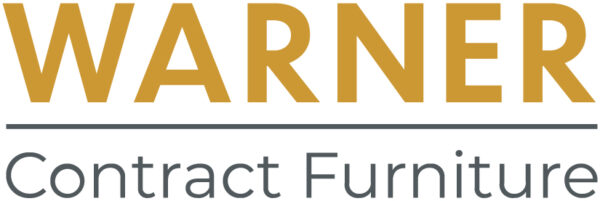Outdoor or ‘Al Fresco’ dining has long been a popular element of the hospitality industry. Restaurants, cafes, hotels, pubs and bars are all businesses where customers are likely to enjoy eating and drinking in the fresh air – meaning that commercial outdoor furniture can be a key element of any venue’s furnishings.
However, with a vast selection available in a number of materials, businesses may struggle to understand which types of outdoor furniture are most suitable for their needs. To help you make the best choice we have outlined below the Pros and Cons of a number of outdoor furniture materials – enabling you to not only understand which type is more suitable for your business, but also make the best decision when it comes to getting great long term value from your investment in contract furniture.
The Main Materials & First Considerations
Firstly, let’s look at the primary materials that high quality outdoor furniture is most often constructed from. There are many differing types within each category but we will address these individually later on.
The main materials are metal, wood, rattan (or wicker) and plastic (in the form of polypropylene). Each of these has their own merits, as well as drawbacks, in terms of their use in commercial outdoor furniture. As a business, choosing the correct fit for your needs and trading environment involves weighing a number of factors beyond their physical properties.
For example, knowing your target market you probably already have a good idea of, not only the look and feel of your venue, but also the competition’s outdoor furnishings. In a highly competitive market place, such as the hospitality industry, your choice of metal, wood, rattan or plastic outdoor furniture may well be based on a desire to either differentiate yourself from the competition or tap into an existing customer base by choosing contract furniture that reflects the overall style of the businesses around you.
Metal Outdoor Furniture
A popular choice with many businesses for outdoor hospitality areas, metal contract furniture often comes in three types: Stainless steel, wrought iron and aluminium. Metal tables and chairs are ideal for resisting the onslaught of both wind and prolonged sunshine, making them highly suitable for outdoor use in certain conditions. In particular, both stainless steel and aluminium outdoor furniture are still light enough to be easily rearranged as required – making these a perfect choice for quick set-up and storage. Aluminium and steel will also stand up extremely well to rain and high levels of moisture. Wrought iron is the true heavyweight of outdoor furniture: robust and designed to stay exactly where it’s put!
The drawbacks of metal outdoor furniture tend to be fairly obvious: Firstly, wrought iron (or any form of untreated metal) is prone to rusting, making it highly unsuitable for seaside or coastal use. In addition, it’s very heavy nature makes moving tables and chairs difficult. Lightweight aluminium chairs, whilst able to deal with normal breezes, are likely to be scattered in gusty or windy conditions.
Wooden Outdoor Furniture
Available in a wide variety of types, wooden outdoor furniture is often constructed from hardwoods, such as teak, pine, cedar, oak, eucalyptus and redwood. A highly versatile and attractive choice, treated wooden tables and chairs stand up well to the worst that the British weather can usually throw at them. Needless to say, the choice of finishes, varnishes and paints enable them to fit in easily with a huge range of styles and decors – From the classically elegant to the most modern and chic of eateries.
Depending upon the style and type of wood chosen this type of outdoor furniture can vary in terms of being easy to rearrange, with heavier chairs and tables representing more of weighty problem.
The obvious cons of wooden outdoor furniture tend to revolve around the high maintenance often required to keep it looking in absolutely tip-top condition. Decay and rot through very wet conditions, as well as fading through the action of intense UV light, can present on ongoing cost.
Rattan Outdoor Furniture
Sometimes also referred to as wicker, rattan is a strong, flexible type of vine used to create this highly attractive, stylish and lightweight type of outdoor furniture. Extremely easy to rearrange and surprisingly resistant to fading in the face of bright sunshine Rattan is an ideal choice for warmer environments or summer use. The basket-like weave of Rattan chairs, with its natural suppleness, is also very comfortable – without the need (or additional cost) of cushions or padding.
However, being an organic material rattan can be vulnerable to both rot and mildew in wet conditions making it unsuitable for all year round use in areas that cannot be covered quickly in inclement weather. It’s very lightweight nature can also make rattan outdoor furniture a problem in windy conditions.
Polypropylene Plastic Outdoor Furniture
Robust and water resistant, Polypropylene, is highly versatile and sees popular use in many outdoor areas. Available in an almost dizzying choice of styles, colours and finishes polypropylene outdoor furniture is the ‘go to’ option for many businesses looking for tables and chairs which represent an excellent balance of durability, availability, choice and value for money.
Highly impact resistant, lightweight and completely unmoved in the face of the heaviest downpour, plastic chairs are also one of the easiest types of outdoor furniture to clean – while their robust nature means Polypropylene chairs and tables offer a long service life with little to no maintenance required.
Plastic outdoor furnishings do, however, suffer from somewhat of an image problem – often being seen as ‘cheap’ or more for use in airports and schools rather than high-end hospitality areas. However, this is gradually changing with superior, modern designs and innovative finishes showing that Polypropylene can compete with more expensive options. Plastics may also fade and crack over long periods if exposed to intense sunshine, so be sure to choose one with UV stabilising polymers.
